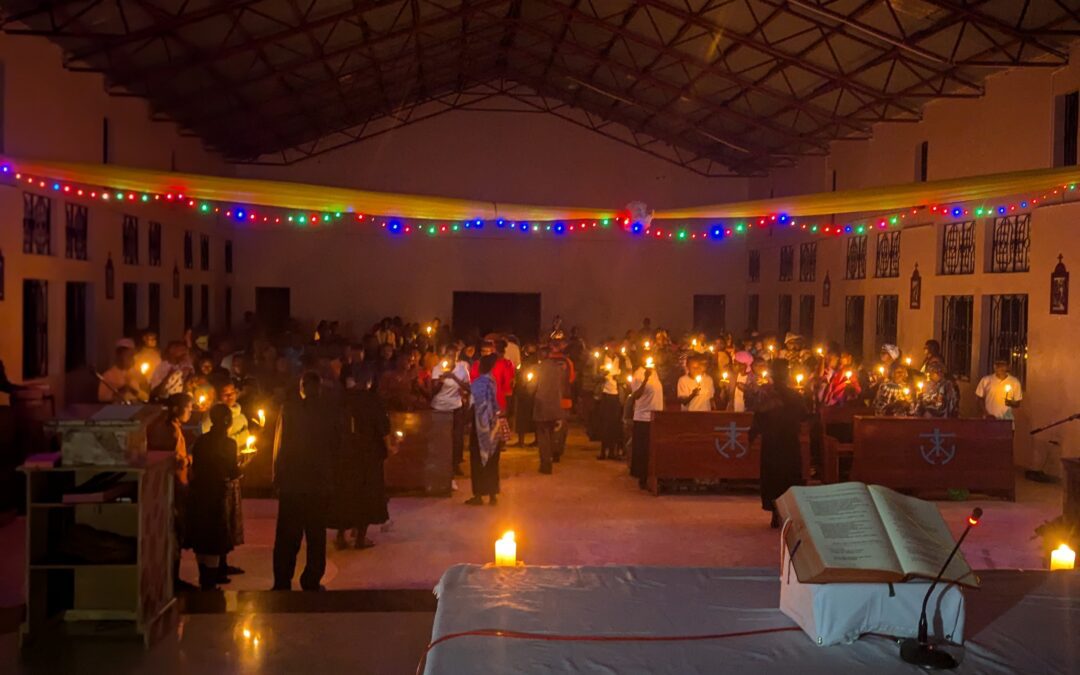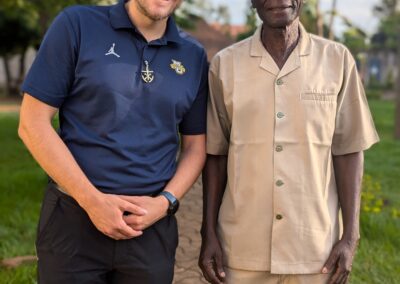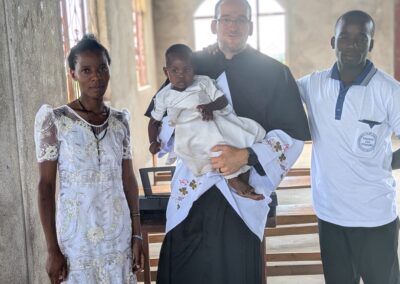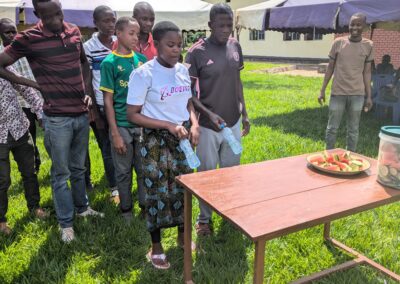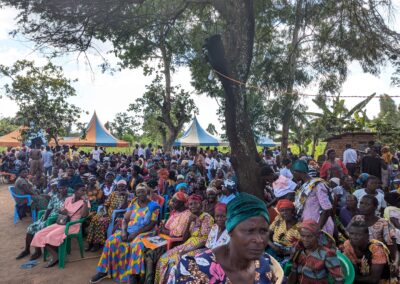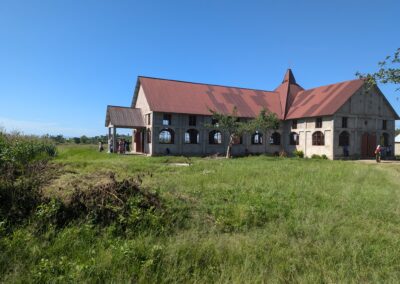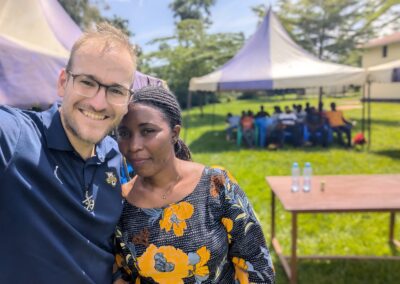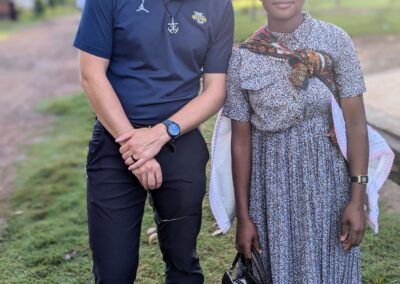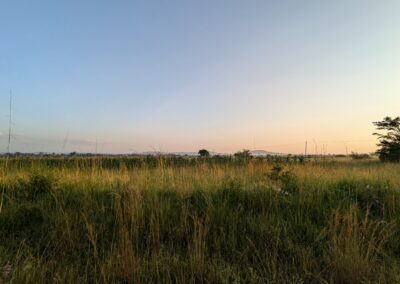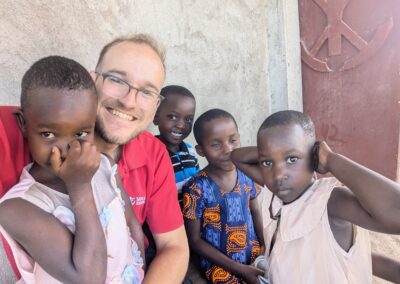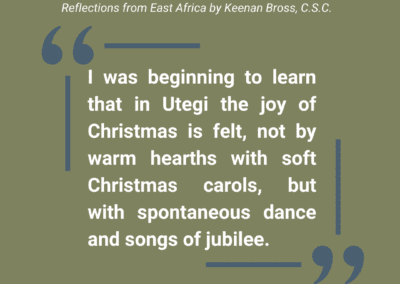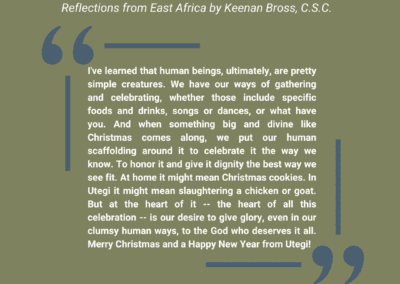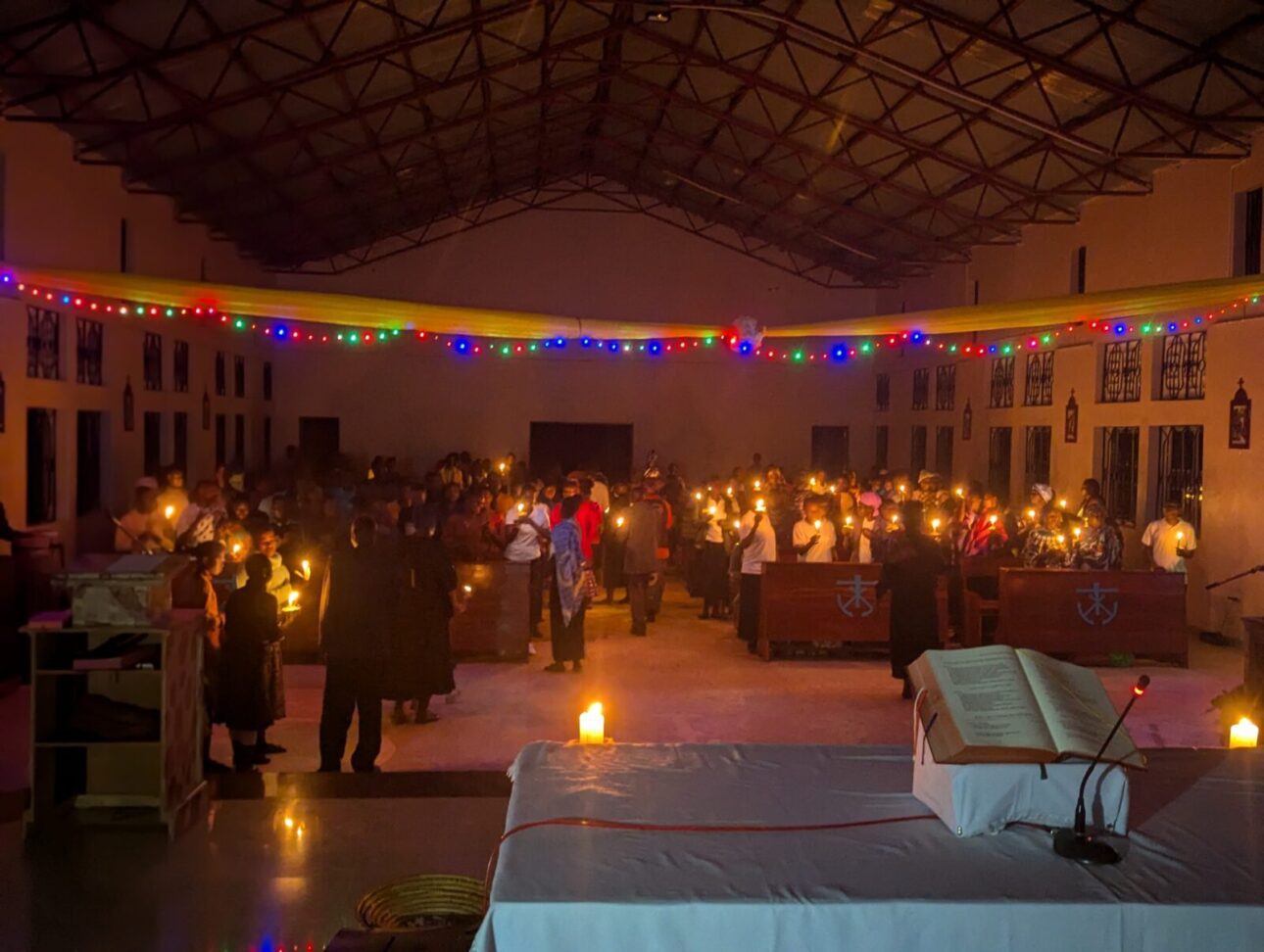
In the “Letters from Nyumbani” series of reflections, Moreau seminarian Keenan Bross, C.S.C., shares his experiences during his pastoral year at St. Felista Catholic Church, a Holy Cross parish in Utegi, Tanzania. The series title includes the Swahili word “Nyumbani,” meaning “home,” a reminder that for Holy Cross religious, “Often we must make ourselves at home among more than one people or culture” (Constitution 2 of the Congregation of Holy Cross).
———
Christmas in Utegi: A New Way to Rejoice
Christmas Eve this year, I was not sitting around the fire with family or huddled in at midnight Mass as usual—instead, I found myself with my brother seminarian, Katongole, in the pitch black night at 8:30 pm on a horribly muddy road trying to get to one of our most far-flung outstations, Nyasoro. This Christmas Eve, we would lead an Ibada, or communion service, on our own since all our priests had Mass in other churches. Now, I knew that my first Christmas away from home would be different, but I wasn’t sure quite what to expect. I had done what I could do to put together a meditation for that night in Swahili: Katika Kristo upendo mwenyewe umeingia duniani na kufungua magereza ya hofu—in Christ, love itself has entered the world, and unlocked the prison of fear. Something a bit meditative for Christmas vigil? No need to rile people up, to tell stories and give examples? Best to fit the calm energy of the silent night, holy night?
Wrong. That reflection wound up being my biggest dud from my time preaching here. I noticed, halfway through, that I had already put quite a few people to sleep. (Admittedly, most folks are asleep by 9:00 here anyway). The ones who weren’t sleeping seemed pretty disengaged. And however beautiful it was that Jesus had freed us from our prison of fear that we might be able to love, the people of God of Nyasoro were not enthused. Thankfully, my brother seminarian Katongole got the vibe better than me. After the rite of communion, he did some proper sikukuu (feast day) cheers to get people riled up, and even initiated a bit of dancing. I was beginning to learn that in Utegi the joy of Christmas is felt, not by warm hearths with soft Christmas carols, but with spontaneous dance and songs of jubilee.
So went the next morning, Christmas day. I accompanied Fr. Innocent at 7:30 am to morning Mass before he dropped me off at our smallest Church to lead Christmas Ibada, or communion service, on my own. When I arrived, folks were still getting settled, so I greeted everyone as best I could, sang a bit with the choir doing last-minute practice, and looked over my reflection. At 10:30 am, we started our procession, singing Christmas hymns as we entered. This time around, I was not afraid to invite people to clap and cheer to celebrate Christmas. And my reflection drove in a less reflective and more joyous point—Jesus is Emmanuel, God-with-us, Mungu Pamoja Nasi. I included abundant examples of what it means to really be with someone in the local culture—and how Jesus’s presence among us totally exceeds even this presence. As we prepared to receive Holy Communion, it felt right to add in—”now, with the joy of Christmas in our hearts, tupeane amani, let us share a sign of peace.”
As Christmas day unfolded, I can’t say I felt the same peace I might have back at home. We didn’t have a ham or mashed potatoes or Christmas cookies. Actually, Father Innocent and Father Andrew both deferred any official celebrations as a community to the following day—we’d be too darn tired, they insisted, to celebrate on Christmas itself. So I took the chance to celebrate with Baba Anselmus’s family, a local elder who’s taken me in these months. I wound up spending the evening with three of his children, my peers in age, who were home for the holidays. The way they were accustomed to spending Christmas, I realized, was not watching football or sitting together as a family—they actually went out on the town, insofar as that’s possible in a place like Utegi. So we ended up across the road from their home at Makungu Grocery, a sort-of bar where you can buy Fanta or Pepsi, Kilimanjaro or Serengeti (national beers), listen to music in the local Luo language, and chat with your loved ones. I had a great time there playing with the children of my adopted siblings, sharing stories from the past few months, and even dancing a little bit as I sipped on my Fanta. By the time I went home at 8:00 pm, I was grateful to feel like I was with family in one way or another on the big day, and that I had experienced celebrating Christmas wholeheartedly the way locals do, even if it was quite different than home.
In a way, what folks in Utegi do for Christmas—going out on the town together, spending time with friends and agemates—is more similar to the American celebration of New Year’s Eve. But my experience of New Year’s Eveone week later here in Utegi could not have been further from the norm in the US. For weeks in advance I’d been planning with our young adults to have a kuangomano, or conference, for our youth all day the 31st leading into an all-nighter to begin the new year together. We invited speakers to address dating & relationships, personal health & wellness, and entrepreneurship. We interspersed these talks with games, sports, competitions, and even a birthday celebration. And as day turned to night and the year came to a close, we gathered together and practiced one last time as the youth choir that would lead midnight Mass.
Amazingly, by 10:45 pm on New Year’s Eve, our church was totally full—of the young people I had brought, but even our parishioners from all over. And that Christmas energy or vitality I mentioned earlier had the church totally bursting at the seams. Fr. Innocent preached an inspiring homily to lead us into the new year, a year of mercy and a year of hope. And just as we finished the Eucharistic prayer and prepared to share communion, we stopped to “welcome the new year,” as they say. We broke into song singing, Mungu Wangu Nakushukuru—”I thank you, My God”—and as the clock ticked midnight we only got louder and added cheers and claps to the cry. It’s hard to describe the experience I had, witnessing the joy of our people from the sanctuary—I was overwhelmed with gratitude for the God that had led me here and filled with hope for the future of this people, a people I am beginning to feel one with.
I thank God that millions gather to celebrate Christmas and the New Year all around the world—you can truly feel the weight of this season here, just as much as at home. But I also thank God for the beautiful and diverse ways we celebrate these sikukuu, these feasts. I’ve learned that human beings, ultimately, are pretty simple creatures. We have our ways of gathering and celebrating, whether those include specific foods and drinks, songs or dances, or what have you. And when something big and divine like Christmas comes along, we put our human scaffolding around it to celebrate it the way we know. To honor it and give it dignity the best way we see fit. At home it might mean Christmas cookies. In Utegi it might mean slaughtering a chicken or goat. But at the heart of it—the heart of all this celebration—is our desire to give glory, even in our clumsy human ways, to the God who deserves it all. Merry Christmas and a Happy New Year from Utegi!
Published: January 7, 2025
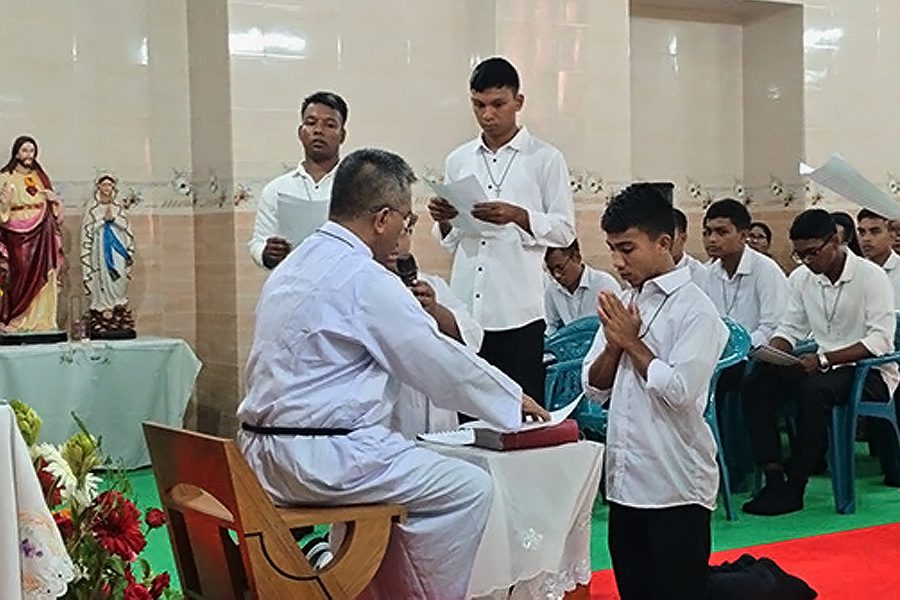
15 Make First Profession In Bangladesh
On October 17th, five novices from St. Joseph Province and ten from Sacred Heart of Jesus Province made their First Vows in the chapel of the...
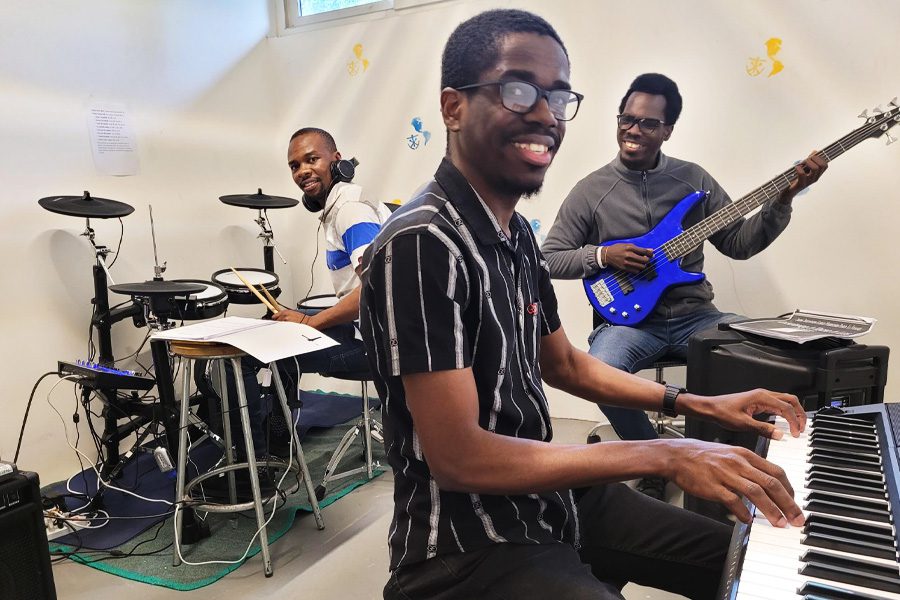
Holy Cross in Chile: Making Music and Rebuilding Trust
The Congregation of Holy Cross began its ministry in Chile in 1943 and has remained steadfast in serving the Chilean people ever since — despite...
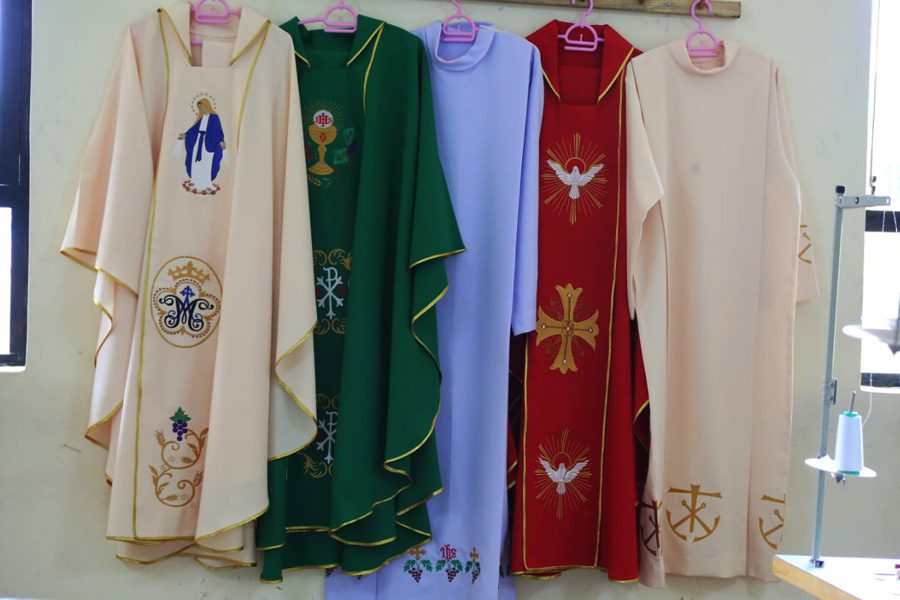
Three New Machines Benefit Tanzanian Trade School
Rev. Ahimbisbwe Herimence, C.S.C., serves as the Director of the Audrey Veldman Vocational Training Center (AVVTC) in Kitete, Tanzania. The school...

